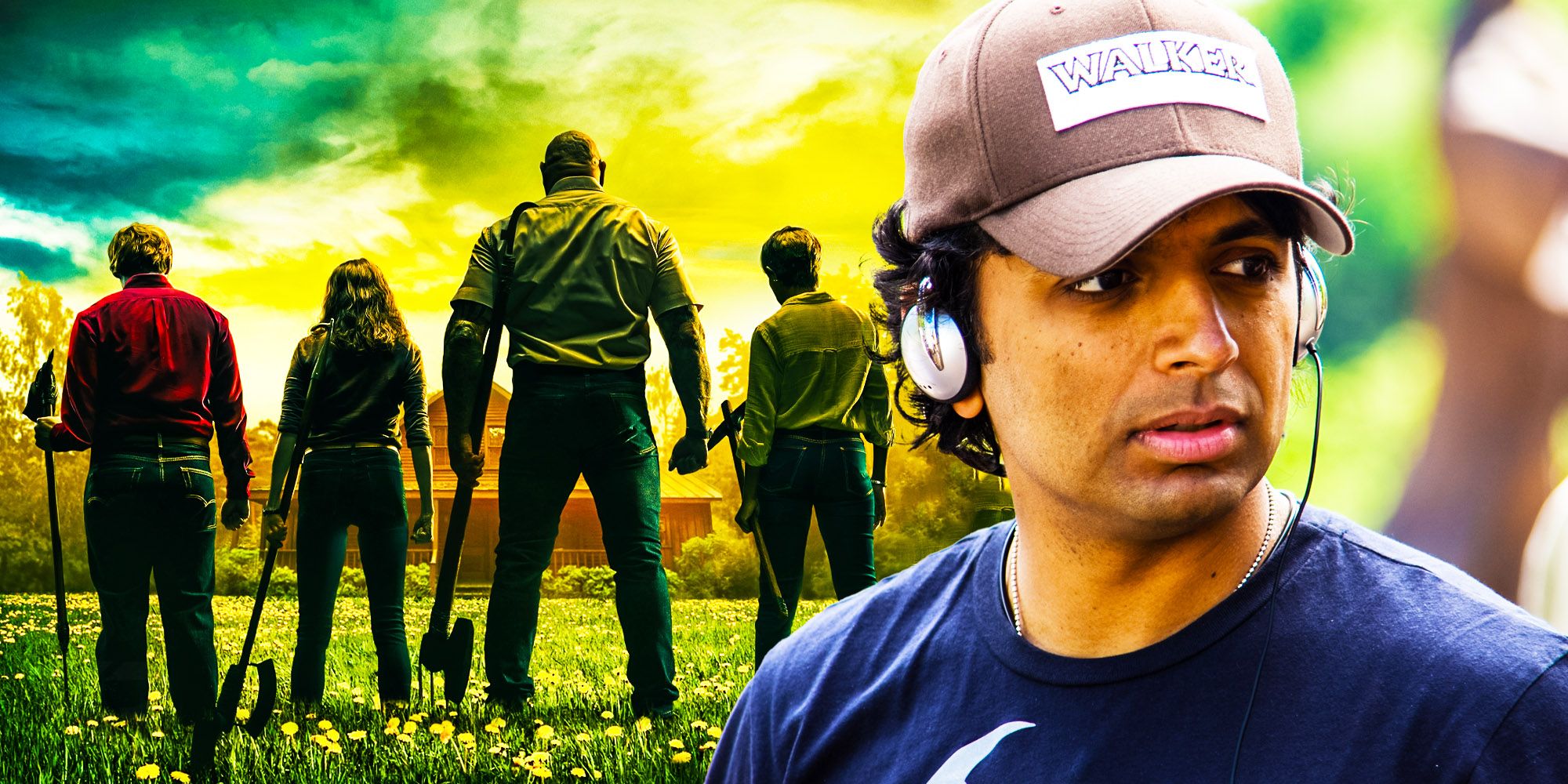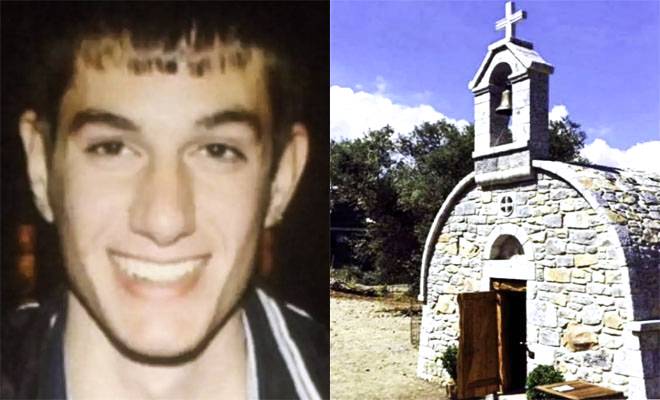M. Night Shyamalan's "The Village": An Agatha Christie-Inspired Thriller

Table of Contents
The Atmospheric Similarities to Christie's Works
Isolated Setting and Gothic Horror Elements
The Village masterfully utilizes its isolated setting to amplify the suspense, mirroring the confined spaces often employed in Christie's novels. This secluded community, shrouded in mist and surrounded by a perceived ominous forest, creates a palpable sense of claustrophobia, trapping both the characters and the audience within its secrets. The film's use of gothic horror elements further enhances this atmosphere.
- Examples of gothic elements in The Village: The dilapidated state of some homes, the pervasive fog, the mysterious forest, the constant threat of unseen creatures.
- Comparison to Christie: This isolated setting evokes the feeling of confinement found in novels like And Then There Were None, where a group of individuals are isolated on an island, or The Mysterious Affair at Styles, set in a seemingly idyllic yet sinister manor house. Both share a sense of foreboding and impending doom.
Unreliable Narration and Suspense Building
Shyamalan expertly employs unreliable narration, a technique frequently used by Christie, to keep the audience guessing. Information is gradually unveiled, piece by piece, creating a constant build-up of suspense. The film cleverly manipulates our perception of reality, ensuring that we are as uncertain as the characters themselves.
- Examples of unreliable narration in The Village: The villagers' accounts of the creatures, the withholding of key information by specific characters, the gradual reveal of the village's true history.
- Comparison with Christie: This mirrors Christie's masterful use of unreliable narrators in many of her works, where the perspective shifts and the truth is hidden behind layers of deception.
Thematic Parallels with Christie's Mysteries
Secrets, Lies, and Hidden Motives
At the heart of The Village lies a complex web of secrets and lies, much like Christie's intricate plots. The villagers' motivations are far from straightforward; each character harbors hidden agendas and carefully guarded truths that slowly unravel throughout the film, creating layers of suspense and intrigue.
- Key secrets revealed in The Village: The true nature of the "creatures," the history of the village's founding, the relationships between its inhabitants.
- Comparison to Christie: These concealed truths and complex motivations are strikingly similar to the intricate plots found in Christie's novels, where the motives for murder or deceit are often far more layered and nuanced than they initially appear.
The Role of Fear and Deception
Fear and deception are not just plot devices in The Village; they are manipulative tools employed by characters to control others and maintain the fragile peace of their community. This psychological manipulation is reminiscent of the methods used by criminals in Christie's works. The film skillfully portrays the debilitating effects of fear and how it can be exploited.
- Examples of fear and deception in The Village: The use of the "creature" myth to control the villagers, the manipulation of Lucius Hunt, the deception surrounding the village's true past.
- Comparison to Christie: Christie frequently utilizes fear and deception as critical plot drivers, creating suspense and manipulating both the characters' actions and the reader's perception of the truth.
The Significance of the Twist Ending (Spoiler-Free Discussion)
The Christie-esque Revelation
The Village's twist ending is a masterclass in shocking revelation, strikingly reminiscent of the unexpected turns found in Christie's works. Without revealing specifics, it's safe to say that the film's final moments force a complete re-evaluation of everything that came before. It's a shocking yet elegantly structured payoff that leaves a lasting impression.
- General discussion of the nature of the twist: The ending reveals a truth about the villagers' reality and forces the audience to recontextualize all previous events.
- Comparison to Christie: This is structurally similar to many of Christie's famous twist endings where seemingly simple mysteries unveil unexpected complexities.
Interpretation and Legacy
The impact of the film's ending continues to be debated and dissected, fueling discussions about the film's themes and its place within the thriller genre. This ongoing analysis mirrors the lasting impact of many Christie novels, with enduring interpretations and analyses across decades.
- Different interpretations of the ending: Some view the ending as a commentary on societal fears, others as a critique of belief systems, and still others as simply a clever narrative trick.
- The lasting impact of the film's twist on the genre: The twist ending has become synonymous with Shyamalan's style and continues to be lauded for its cleverness and shocking nature.
Conclusion
M. Night Shyamalan's The Village stands as a testament to the enduring power of suspense and psychological thrillers. Its atmospheric similarities to Agatha Christie's works, particularly the use of isolated settings, unreliable narration, and intricate webs of secrets, are undeniable. The film's masterful employment of gothic horror elements, its exploration of fear and deception, and, of course, its unforgettable twist ending, all contribute to its status as a modern classic within the thriller genre. Watch or rewatch The Village with a newfound appreciation for its Christie-inspired storytelling. Share your thoughts on the film's connections to Agatha Christie's work in the comments below! Let's discuss the subtle and not-so-subtle ways that Shyamalan pays homage to the queen of crime in this chilling and captivating thriller.

Featured Posts
-
 The Impact Of Layoffs On An Abc News Program
May 20, 2025
The Impact Of Layoffs On An Abc News Program
May 20, 2025 -
 Retired Navy Admirals Bribery Conviction 30 Year Sentence
May 20, 2025
Retired Navy Admirals Bribery Conviction 30 Year Sentence
May 20, 2025 -
 Diskningar I F1 Analys Av Hamilton Och Leclercs Situation
May 20, 2025
Diskningar I F1 Analys Av Hamilton Och Leclercs Situation
May 20, 2025 -
 Watch Out For Damaging Winds Fast Moving Storms
May 20, 2025
Watch Out For Damaging Winds Fast Moving Storms
May 20, 2025 -
 Baggelis Giakoymakis I Tragodia Toy 20xronoy To Bullying Kai Oi Vasanismoi
May 20, 2025
Baggelis Giakoymakis I Tragodia Toy 20xronoy To Bullying Kai Oi Vasanismoi
May 20, 2025
